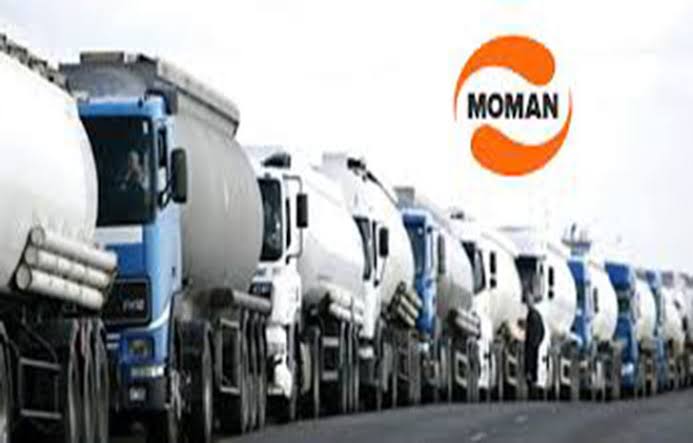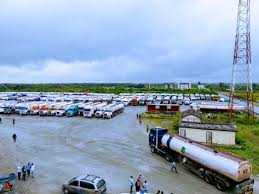
Fuel supply: 9,000 marketers may lose licences, seek FG’s intervention
More than 9,000 oil marketers in Nigeria are in danger of losing their licences to operate as a result of the country's fuel shortage.
As a result, the Nigerian National Petroleum Company Limited is being urged to extend its final licencing renewal date to July by the Independent Petroleum Marketers Association of Nigeria.
The Nigerian Midstream and Downstream Regulatory Authority was also urged to grant its members access to the 9,000 permits that have already been completed.
The association announced the appeal on Thursday in Abuja through a press release that was signed by Chief Chinedu Ukadike, the National Public Relations Officer.
Recall that IPMAN bemoaned in a statement on Sunday the sluggish rate at which the NMDPRA is renewing marketers' licences.
In order to continue using their customer express portals to purchase petroleum products from NNPC Retail Limited, marketers were given until April 15, 2024, by the NNPCL, to renew their licences or face closure.
However, IPMAN asked for a longer period of time, claiming that this would allow marketers to reestablish their licences and lessen public panic buying, which exacerbates the current petroleum product shortage.
The statement said as follows: "The Nigerian Midstream and Downstream Petroleum Regulatory Authority has informed us that they have already processed over 9,000 of the 15,000 licences they are expected to process for our members within this time frame. The Independent Petroleum Marketers Association of Nigeria is aware of the latest developments in the downstream sector of our petroleum industry and wishes to state this.
"Marketers are expediting the licencing process in order to prevent their customer express portals for the purchase of petroleum products from NNPC Retail Limited from closing.
We hereby take this chance to request that the NNPC Retail Limited and NMDPRA management extend the deadlines for delisting merchants from their express portals and release the processed licences, respectively. If our request is approved, it will reduce public anxiety over panic buying and prevent the current petroleum product shortage from getting worse.
"The release is to appeal to the NNPCL and NMPDRA to please extend the final deadline to July so that it would enable them to reconcile the licences so that they will not be unduly shut out of the portal and that is IPMAN appeal," Ukadike clarified in a phone conversation.
In response to the marketers' request, our correspondent got in touch with Ayo Cardoso, the NMDPRA South-West Regional Coordinator.
"We will investigate their request," he said in a conversation with our correspondent.
In the midst of the ongoing gasoline crisis, IPMAN announced on Tuesday that if the Federal Government did not pay the N200 billion that was owing to marketers, it would close the 30,000 stations that its members owned and ran nationwide.
Particularly, IPMAN stated that from September 2022, the debt had been accruing and the NMDPRA had declined to pay it off.
The non-payment of marketers' bridging claims was revealed in a communiqué released in Abuja by Yahaya Alhassan, the Chairman of the IPMAN Depot Chairmen Forum.
Fuel shortage persists
Commercial drivers in Abeokuta, the capital of Ogun State, have begun to stand watch at petrol stations in an attempt to purchase the now rare Premium Motor Spirit.
In an effort to guarantee that fuel is distributed throughout the entire nation and alleviate the shortage right away, the Federal Government said on Wednesday that it has started a 15-day emergency supply.
Furthermore, the government said that ships carrying Premium Motor Spirit will keep docking at the coast in order to empty petrol into various depots, which would then distribute the fuel to various petrol outlets.
Commercial drivers are currently keeping watch at petrol stations in Abeokuta, Lagos, Oyo and other places, thus despite these assurances, the product is still unavailable to locals.
Since most commercial drivers now buy from illegal marketers who charge N1,200 or more for a litre of petrol, the cost of transportation has increased.
Adio Adegoke, a commercial driver at the Slaab filling station in Abeokuta, informed our correspondent that he had attempted to purchase petrol by sleeping in his vehicle.
"My petrol ran out at 7:30 p.m. yesterday, so I had to park my car here. He said, "I slept at the Divine Pax Oil and Gas filling station."
"I just bought it there this afternoon for one of my customers, they are still selling it as we speak at the rate of N950 per litre," said mechanic Lekan Ade, confirming the taxi driver's statements.
In addition to being noted on their metre, an attendant at the petrol station warned drivers to leave if they were unable to purchase the product at that price when our correspondent attended.
Many drivers slept at the fueling station before they could collect the merchandise, according to Adeoluwa Onasanya, another driver, who spoke with one of our correspondents.
Little boys and girls have been seen selling petrol in jerry cans on the side of the road in Lekki, Ajah and other districts of Lagos, suggesting that the ongoing fuel shortage is a major source of revenue for black marketers.
One of our correspondents saw that the black marketers in Lagos were selling five litres of the substance for N6,000 along the Egbeda-Idimu-Ikotun axis.
"What is your desired volume of litres?" asked a young man identifying himself as Mr. John. Here, we charge N6,000 for five litres. The fuel station charges N1,200 for a litre; in order to obtain the product, we must bribe the fuel station. "I can give you any amount of litre that you want," he bragged.
The NNPC filling station on the Cele Motorway had a big queue of cars waiting to pay N568 per litre, while the AP filling station near Barracks Bustop had a long queue of drivers rushing to pay N700 per litre.
Nigerians are concerned that the fuel crisis may lead to a loss of revenue sources because the lines at the gas stations aren't getting shorter despite the government's assurances.





